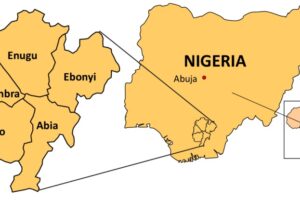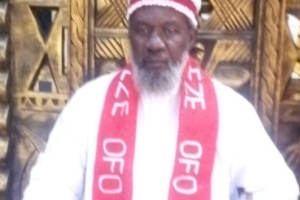
Christian C. Madubuko, PhD
As President Bola Ahmed Tinubu, GCFR, sets out on his epochal quest to redefine Nigeria’s place in the world by his intention to appoint new ambassadors, we must recognize that soft power diplomacy would form the hidden gem in his diplomatic toolkit of selection. This subtle yet potent art can weave a tapestry of affection and admiration around Nigeria, repairing the tattered fabric of our international reputation. With his storied past as a seasoned leader and his keen understanding of the nuances of global diplomacy, President Tinubu is poised to unlock the full potential of Nigeria’s soft power, leveraging its rich cultural heritage, vibrant arts, and entrepreneurial spirit to resurrect our nation’s standing on the world stage.
In the treasure trove of nations, Nigeria stands as a rare gem, richly endowed with the earth’s bounty, a kaleidoscope of cultures, and a warm, welcoming spirit that has the power to captivate and inspire. This West African nation, with its storied past and vibrant present, has the potential to wield its soft power like a master weaver, weaving a tapestry of attraction, persuasion, and co-optation that draws others in and fosters a sense of global belonging. As Joseph Nye so astutely observed, soft power is the art of attracting and influencing others through gentle means, rather than coercion or force.
Nigeria’s unique blend of cultural diversity, artistic expression, and entrepreneurial spirit can be harnessed to create a magnetic global image that draws people together, fosters cooperation, and deepens our understanding of one another.
Nigeria’s diplomatic odyssey unfolded, its foreign missions overseas became a beacon of hope, shining brightly as a testament to the country’s unwavering commitment to international diplomacy and its aspirations to be a revered member of the global community. Since 1960, Nigeria has been astalwart member of the international community, actively engaging in a grand tapestry of diplomatic endeavours, weaving a narrative of peace, stability, and development. Yet, the once-vibrant fabric of Nigeria’s international relations has been tarnished by the scourge of corruption, which has sullied the nation’s reputation abroad and eroded the respect and admiration that once characterized Nigeria’s diplomatic endeavours. The once-respected flag of Nigerian diplomacy now flaps in the wind, its tattered edges a poignant reminder of the fragility of international trust and the imperative for reform.
Nigeria’s diplomatic legacy is a treasure trove of brilliant minds, whose collective efforts have forged a path of international recognition and respect. From the trailblazing Ambassadors Akinola Agba, who spearheaded Nigeria’s entry into the United Nations, to Anthony Enahoro, who expertly navigated the diplomatic waters to establish Nigeria’s ties with China, to Aja Nwachukwu, who championed Nigerian interests in the United States with unwavering dedication. During his tenure as Ambassador to the United States from 2019 to 2022, Nwachukwu orchestrated a symphony of diplomatic victories, securing substantial investments in Nigeria’s agricultural and infrastructural sectors, and fostering a cultural exchange that bridged the gap between Nigeria and the United States. His remarkable achievements are a testament to the enduring legacy of Nigeria’s diplomatic elite, whose collective
service has earned the nation a reputation as a respected player on the global stage.
The selection of diplomats is a critical component of Nigeria’s diplomatic efforts in its relations with the international community. It is imperative that Nigerian leaders prioritize the appointment of individuals who possess the necessary skills, experience, and integrity to effectively represent the country abroad.
This requires a rigorous process of selection, which considers not only the candidate’s qualifications but also their moral character and reputation. As the ambassadors of the nation’s honour, the chosen few who don the diplomatic mantle must embody the very essence of Nigeria’s character and the President’s vision. It is crucial, therefore, that our leaders gaze into the mirror of their own conscience, scrutinizing the recesses of their hearts and minds before extending the sacred trust of ambassadorship. For in this moment, they are not only selecting a representative, but also an ambassador of the country’s soul, a reflection of its values, and a harbinger of its aspirations. The sacred oath of ambassadorship is often reduced to a mere formality, as self-serving individuals with
deep pockets buy their way into the esteemed role. These individuals, driven by personal ambition and a hunger for wealth, would prioritize their own interests over the nation’s, rendering their diplomatic missions a mockery of the country’s honour. Meanwhile, the allure of proximity to power has become a potent currency, as unscrupulous individuals with no qualms about bending the rules feast on the country’s coffers, catapulting unqualified individuals into the hallowed halls of diplomacy. The result is a tragic erosion of trust and credibility, as Nigeria’s reputation abroad is tarnished by the very people entrusted to represent its best interests.
Like a once-beautiful tapestry ravaged by the threads of corruption, Nigeria’s diplomatic fabric hasbeen frayed, its international reputation tarnished by the very allegations that once shone brightly with the lustre of a proud nation. The country’s image abroad has been sullied by the stain of graft, and the trust and respect that once flowed like a river from the hearts of nations now dwindles to a mere trickle. It is imperative that President Tinubu and his administration take decisive action to mend the torn seams of Nigeria’s diplomacy, to restore the nation’s honour as a respected member of the global community, and to revive the lustre of its international reputation. One approach that can be
taken is to deploy Nigeria’s soft power diplomacy and people-to-people oriented diplomacy to make Nigeria shine again. This requires a focus on building relationships between Nigerians and people from other countries, as well as promoting cultural exchange and understanding. By fostering greater people-to-people connections, Nigeria can build stronger bonds with other countries and promote a more positive image of itself abroad.
As President Tinubu gazes out upon the nation’s landscape, he would do well to recall the parable of the sacred cows, those unassailable figures of power and wealth who roam the land with impunity, as if the very tenets of equality had been rewritten to declare: “All animals are equal, but some are more equal than others.”This eerie echo of George Orwell’s prophetic words has long haunted our nation, a stark reminder of the entrenched inequalities that have ravaged our society like a plague. It is imperative that we confront these distortions and strive for a society where every citizen enjoys the same privileges, where the pursuit of happiness is not a privilege reserved for the few, but a fundamental right for all.
I must personally acknowledge the President’s efforts in tackling corruption, insecurity, terrorism and the vagaries of corrupt practices. His determination to eradicate these scourges is a testament to his commitment to restoring Nigeria’s reputation. However, we must urge him to strengthen government regulatory instruments in dealing with corruption, which has been the worst enemy of Nigeria. As former President Buhari aptly put it, “kill corruption or corruption kills Nigeria”, while in the outburst of former EFCC Chairman, Nuhu Ribadu, “when you fight corruption, corruption fights back”. This is simply because like the haunting prophecy of The Animal Farm, our country’s reality is eerily reminiscent of the stark admission that ‘All Animals are equal, but some are more equal than others’, a haunting reminder that the ideal of equality remains an elusive dream, and that the power to shape reality is often wielded by those who claim to be its most equal, yet are in truth its most unequal.
As the nation’s foundation trembles, so too does its international standing. The whispers of corruption and inefficiency have tainted the air, and our diplomats’ words of reassurance are met with scepticism. But what if we were to turn the tide by rebuilding our nation from the very earth that nourishes it? By harnessing the untapped potential of our soft power diplomacy, we could transform our embassies into beacons of Nigerian excellence, illuminating the world with our rich cultural heritage, our values of resilience and hospitality, and our achievements that defy the odds. In this way, we would not only redeem our tarnished reputation but also forge a new path forward, where Nigeria’s image is forged in the fire of its people’s potential.
The tempo of Nigeria’s internal rhythm dictates the melody of its global harmony. The discordant notes of corruption, insecurity, and economic stagnation that echo through the nation’s streets reverberate across the globe, influencing the international community’s perception of our country’s character and credibility.
As the curtain closes on Nigeria’s diplomatic saga, it’s clear that the once-majestic stage of international relations has been marred by the scorching heat of corruption. The once-respected ambassador of Nigeria’s values – diplomacy, integrity, and excellence – now languishes in the shadows, its tattered flag a testament to the erosion of trust and respect. But there’s a chance to revive the nation’s global standing, and it begins with the appointment of diplomats who embody the best of Nigeria’s spirit – those who possess the skills, experience, and integrity to shine like beacons of hope on the international stage. By harnessing the power of soft diplomacy and people-to-people connections, Nigeria can rekindle the flames of friendship, rebrand its image, and reclaim its rightful place as a respected and influential member of the global community.Let us join hands to reclaim Nigeria’s rightful place among the comity of nations!
Dr. Madubuko, a political and diplomatic historian writes from the Australian Capital Territory, ACT




